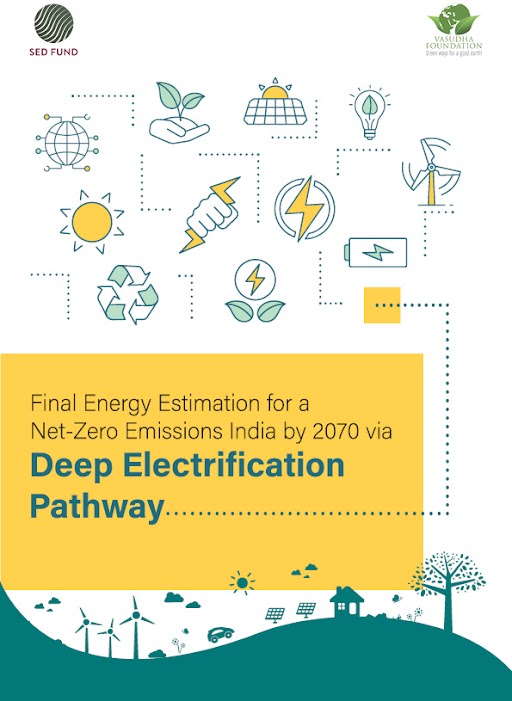
India’s pathway to Net Zero must be led by a successful and just energy transition. To tackle the energy transition challenge, electrification emerges as a critical energy vector to foster a clean energy transition. Electrification brings forth a set of benefits that go well beyond GHG emission reduction. Increased influx of renewable sources in our energy mix and development of distributed energy sources improves affordability, accessibility, and security of electricity supply. Deteriorating air quality can be addressed with clean electrification. Electricity enables the digitalisation of energy uses through the integration of smart technologies and supports the development of innovative products, services, and business models, leading to a positive impact on the economy. Electrification also opens avenues to support the circular economy, thereby improving resource efficiency and leading to new jobs emerging from a well-planned just transition process.
In this paper, we examine the impact of an economy-wide deep electrification strategy on the final energy requirement for India. Multiple scenarios accounting for varying levels of direct and indirect electrification have been considered. While the majority of the energy-consuming sectors can be transitioned to direct or indirect electrification, there is a need to account for the infrastructure requirements and incorporation of digitalisation to sustain a developed Indian economy reflected by a high Human Development Index (HDI) value (≥ 0.9). Further, the adoption of circular economy practices will lead to savings across the economy, which need to be accounted for while estimating India’s final energy requirement by 2070.
These estimates can serve as a reference in charting out the Net Zero pathway by contributing to energy resource planning and other critical components leading to an electrified, energy-secure, and developed India by 2070.




